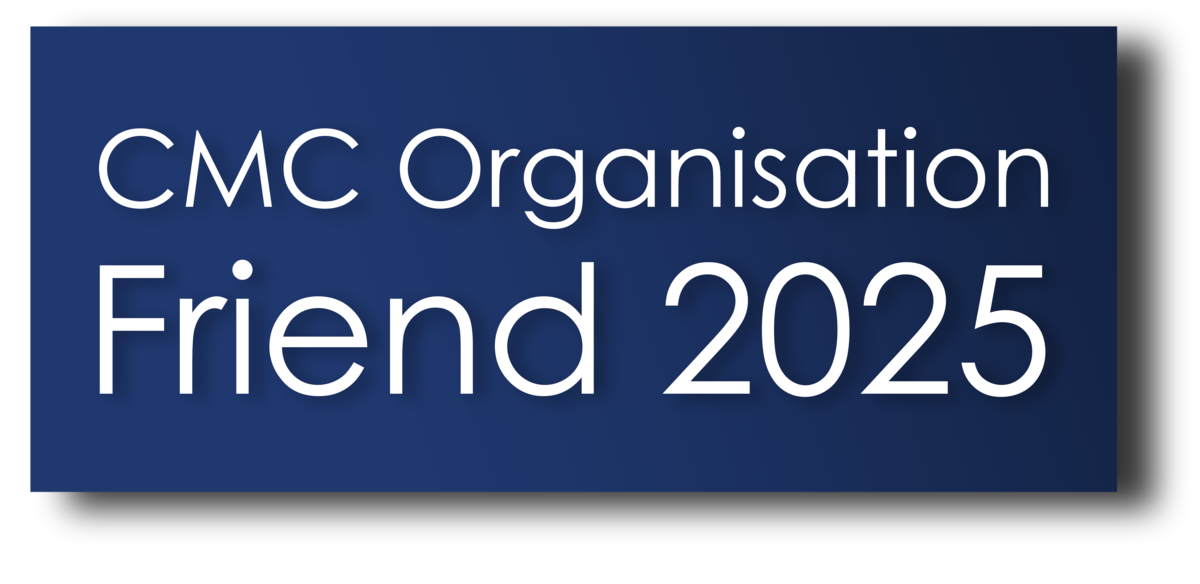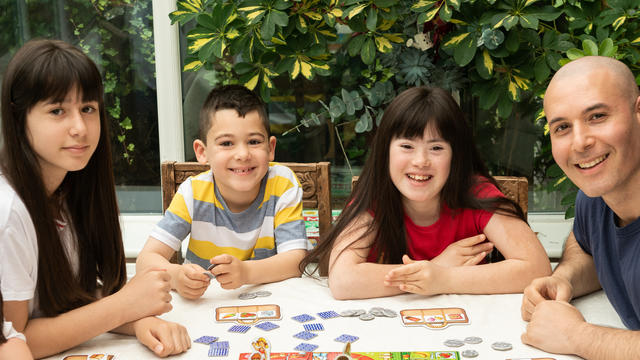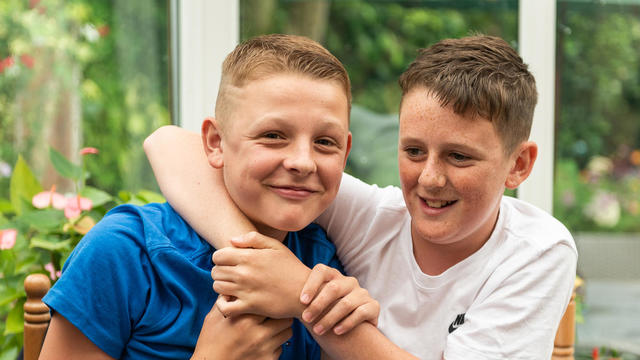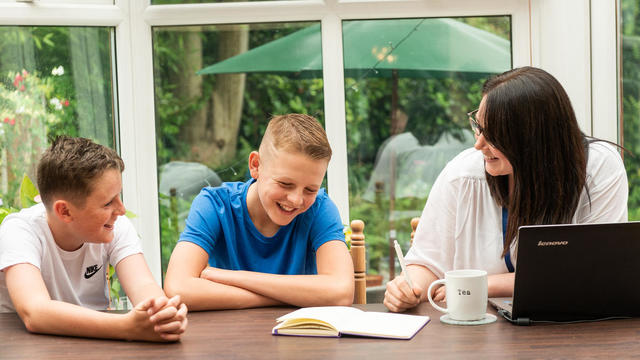SEND mediation and disagreement resolution
If you’re currently in disagreement about a young person's education, health and care plan, we can help. Our specialist mediation and disagreement resolution service brings different parties together to work towards a positive outcome.
We continue to offer mediations online as this has proved to be effective and successful. We will consider face to face meetings if requested and possible for all participants. Contact us to find out more
We’re an impartial service offering factual and unbiased information. We create neutral spaces where everyone feels heard and supported. We champion every young person’s voice, making sure their needs and ambitions are at the heart of the conversation.
Together we help build meaningful relationships for the road ahead, with children and young people at the heart.
Which service is right for you?
If you’re not sure whether you need mediation or disagreement resolution, here’s a quick look at the difference. In both cases we’ll arrange a meeting between all parties to talk through the issues. We’re then on hand to make sure everyone is heard, and that any agreements are reached together.
What is mediation?
Mediation can help settle any disputes with your local authority over your child's education, health and care plan (EHC). If you want to challenge a decision that’s been made, mediation is your first stop before considering an appeal to the first tier tribunal. It’s an opportunity to get all parties together to resolve any issues early. We can give you factual and unbiased information about the process to help you decide if mediation is right for you. If it's not right for you, we can issue you with a mediation certificate.
Mediation can take place following decisions by a local authority
- Not to carry out an EHC needs assessment
- Not to draw up an EHC plan, after they receive a final EHC plan or amended plan
- Following a decision not to amend an EHC plan or
- If a decision to cease to maintain an EHC plan is made
Parents and young people do not have to contact the mediation adviser prior to registering their appeal with the Tribunal if their appeal is solely about the name of the school, college or other institution named on the plan, the type of school, college or other institution specified in the plan or the fact that no school or other institution is named.
What is disagreement resolution?
Disagreement resolution is voluntary for everyone involved and applies to any aspect of special educational needs and disability (SEND) provision. It’s a great way to resolve different types of disagreement.
Disagreement resolution arrangements cover all children and young people with SEND, not just those who are being assessed for or have an EHC plan. They are available to parents and young people to resolve disagreements about any aspect of SEN provision, and health and social care disagreements during the processes related to EHC needs assessments and EHC plans.
Get in touch to see if this approach is right for you.
Still unsure? Talk to us.
Whether you’re a parent or carer, school or service commissioner, our friendly, impartial team is here to help. Give us a call or send us your details via our contact form and we’ll be in touch.
T: 0161 283 4807
E: drs@togethertrust.org.uk
We're a member of the Civil Mediation Council (CMC) and are registered with the SEND mediation standards. Our team were also part of the Department for Education's working group that helped develop the SEND mediation standards. So you can count on our expertise.
Your questions answered
Where can I access your services?
Our mediation and dispute resolution service is available in Blackburn with Darwen, Bolton, Cheshire East, Cheshire West & Chester, Manchester, Salford, St Helens, Stoke on Trent and Telford and Wrekin.
How much does it cost?
Nothing. The mediation and disagreement resolution service is free to parents, carers and young people. You may also be able to claim back some expenses incurred while attending a mediation meeting. Speak to your local authority for more info about this.
Who can make a referral?
Parents, carers or young people aged between 16 and 25 years can contact us by phone, email or website enquiry form. We can also take referrals from local authorities, independent information, advice and support services, school staff or other agencies. If you’re a third party making a referral, please get permission from parents and carers before sharing any details with us.
Who takes part?
Every case is different. However, it’s crucial that key people attend so that meaningful agreements are reached and actions put in place. Usually there’s at least one parent or carer and at least one representative from the local authority. We’ll also discuss how best to include the child or young person so their views are represented. Other parties could include school staff or staff from other agencies (e.g. CAMHS or voluntary organisations). If you’re a parent or carer you can also invite someone to support you. This could be a family member, an Information, Advice and Support Service (IASS) worker or an advocate if one is available locally. Legal representation is not necessary.
Can the young person attend?
We do everything we can to put young people are at the heart of every discussion. We’ll make sure they’re fully involved where possible, as long as this doesn't cause upset or anxiety. All meetings are accessible if the young person wants to attend. Or they can input in other ways depending on their interests and needs, such as via a phone call, email or video. We have a variety of resources available to help children and young people understand, prepare for and input into the mediation process. They can also complete a booklet called 'This is me' to explain what is important to them and what support they need. Where it isn’t possible for a young person to attend, we’ll work with those who know them best to ensure their views are expressed.
Are mediation and disagreement resolution the same thing?
No. The Special Educational Needs and Disabilty Code of Practice: 0 - 25 Years sets out the differences between mediation and disagreement resolution. This information can be found in sections 11.5 to 11.38 (pages 236 - 246) of the Code.
Mediation applies to disagreements resulting from decisions made by local authorities. For example, a decision not to carry out an assessment or a decision to cease to maintain an EHC plan. Mediation is voluntary for parents, carers and young people, but if they decide to mediate following receipt of independent advice, local authorities must attend.
Disagreement resolution arrangements cover all children and young people with special educational needs and disabilities (SEND). It covers a range of disagreements and is available to parents, carers and young people. Disagreement resolution is completely voluntary, and all parties must agree to attend.
What is the mediation process?
Mediation starts with an initial phone call. We’ll give you factual and unbiased information so you can decide if mediation is right for your situation. We’ll also answer any questions you might have about the process. If you decide to request a mediation meeting, we’ll then take a brief case history so we understand the needs of the child or young person and the disagreement you want to be resolved. We’ll also discuss who should attend and how we can support you throughout the process. We’ll then contact your local authority and get back in touch with possible dates and potential venues. Once meeting details are agreed, we’ll send details in writing to everyone involved.
If you decide mediation is not for you, we can provide a certificate to allow you to submit an appeal to the first tier tribunal.
What is the disagreement resolution process?
Disagreement resolution begins with an initial phone call to chat through the disagreement or issues that need to be resolved. We’ll ask for a brief case history so we understand the needs of the child or young person. We’ll also agree the focus of the meeting, who should attend and how we can support you throughout the process.
After this call, we’ll contact the relevant parties and ask if they would be willing to take part. If everyone agrees, we’ll discuss a suitable date, time and neutral venue for a meeting.
As disagreement resolution is voluntary, sometimes agreement to proceed is not reached. If that happens, we will inform all involved and that will, unfortunately, be the end of our involvement.
How long does it take?
The majority of our preparatory work is usually carried out over the telephone and/or by email. This involves the initial referral call, updates and preparation call with the mediator. The mediation and disagreement resolution service meetings usually take around two hours. We find that this length of time allows people to stay focused on the agreed issues, and it makes it easier for people to find time around other commitments.
What will the meeting be like?
Although mediation and disagreement resolution is part of the SEND legislation, we try to put everyone at ease and keep the meeting as informal as possible. The mediator can help with this during preparatory calls and also offer breaks during the meetings if you need them.
At the start of a meeting, we’ll ask everyone involved to introduce themselves, outline issues and start to form a meeting agenda. You’ll also hear about the mediator’s role and how the meeting will be structured.
During the meeting, everyone will have the chance to share their views and listen to others. The mediator isn't there to take sides or make decisions. Instead their role is to make sure everyone is heard. They’ll also encourage everyone to work together towards a resolution.
Meetings usually last about two hours and are held as centrally as possible to all parties, within a neutral venue.
What will the outcome be?
The people involved are in control of the outcome. So mediation and disagreement resolution services work best when everyone has a real willingness to work together towards a meaningful resolution. After the meeting, you’ll receive an 'outcome statement' – a document summarising the key discussion points, the outcome and any agreed actions. Each party will be asked to sign this outcome statement before the meeting ends, to confirm it is an accurate record.
Where else can I go for help?
It’s our job to remain impartial throughout the process. We can provide factual information about the mediation and disagreement resolution processes, but we can’t advise which route is best. We recommend that you contact your local Information, Advice and Support Service and/or seek advice from other specialist organisations if you need it.
Here are some websites you might find useful:
- Information and Advice Services Network
- IPSEA
- Special Educational Needs and Disability Tribunal
Mediation certificates
There are three types of mediation certificates that can be issued:
- Part 1 – if a parent or young person has considered mediation but decides to lodge an appeal with the SEND Tribunal service without attending mediation
- Part 2 – following mediation (if the mediation meeting takes place within 30 days of the request to the Local Authority)
- Part 3 – If mediation hasn’t taken place within 30 days of referral we will issue a certificate to ensure the right of appeal is not lost (Mediation can still take place until the certificate expires)
Mediation certificates expire after 30 days from the date they are issued.
Parents and young people do not have to contact the mediation adviser prior to registering their appeal with the Tribunal if their appeal is solely about the name of the school, college or other institution named on the plan, the type of school, college or other institution specified in the plan or the fact that no school or other institution is named.
Need more information?
We’ve created lots of handy resources and guides to help you through the mediation and disagreement resolution process. Download our resources below.
Or get in touch with our friendly team.
T: 0161 283 4807
E: drs@togethertrust.org.uk







